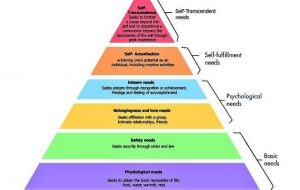Neurasthenia
There is one branch of psychology that studies neurotic disorders known as neurasthenia. This disease affects men and women equally and its main characteristic is the inexplicable exhaustion after making a physical or mental effort and the decrease of the capacity to carry out regular daily activities.

Related topics
Asthenia, stress
What is neurasthenia?
Neurasthenia is the term given in psychiatry to a neurotic disorder that manifests itself as an unexplained exhaustion that occurs after physical or mental exertion. Its name comes from the words "neuro" (which refers to the nervous system and particularly the mind) and "asthenia" (which is a feeling of weakness or physical exhaustion).
Neurasthenia is also known by other names such as chronic asthenia, Da Costa syndrome, functional cardiovascular disease, soldier’s heart among others. This disorder decreases the ability to perform daily activities and if its duration is prolonged for a long time, can lead to other disorders such as depression and anxiety.
It is often thought to be hereditary or caused by a very strong emotional disorder. The causes of neurasthenia can be very trivial, such as frequent conflict at work, severe work fatigue, or loss of a loved one.
Sexual neurasthenia is sometimes characterized by sexual dysfunction.
Regardless of it causes, it is important to take early action to prevent this disorder from causing irreparable health damage.
Phases of neurasthenia
- The hypersthenic phase: This phase is characterized by symptoms such as fatigue, sleep disturbance, irritability and state of excitement.
- Irritable weakness phase: In this phase a feeling of impotence is generated which generates weakness and irritability that may be accompanied by spontaneous crying.
- Hyposthenic phase: This final stage of the disease, takes time to appear and is characterized by feelings of lethargy, apathy, passivity and lack of interest with the desire to cry.
Diagnosis of neurasthenia
Neurasthenia can be diagnosed in people who suffer from exhaustion after minor mental or physical exertion, a feeling of discomfort combined with a state of depression and excitement.
This is accompanied by muscle aches, dizziness, sleep disturbances and a lot of irritability.
Causes
The causes of neurasthenia have not yet been determined, however, like many disorders, they have a hereditary origin, or due to stressful work, age (between 20 and 55 years) and sex, in this case predominates in males.
Among the possible causes of neurasthenia, the following have been identified:
An infectious agent, such as several of the viruses that exist, the agent of Lyme disease, mycoplasma, yeasts and other fungi.
- A toxic agent, such as mercury, particularly from dental amalgams, various organic solvents, herbicides and various chemical compounds such as aspartame.
- Immune dysfunction.
- A hormonal dysfunction is the case of thyroid disorders that can cause symptoms of chronic fatigue.
- Dysautonomia, which refers to the breakdown of the autonomic nervous system function.
- Metabolic problems.
- Deficiencies or nutritional imbalance.
- A generalized anxiety disorder.
- A compulsive-obsessive disorder.
- Lack of rest or sleep.
If any of these causes produces neurasthenia in an individual, it is necessary to apply a treatment quickly because if it is left for later, it can cause serious mental problems.
Symptoms
Neurasthenia becomes evident with the following symptoms:
- Physical exhaustion, feeling of progressive weakness after a mental or physical
- Exhaustion and complaints when doing small physical activities.
- Muscle aches.
- Inability to relax.
- Sleep disorders.
- Tension headaches.
- Anxious, depressive or irritable moods.
Treatment of neurasthenia
The treatment is complex and requires the patient’s commitment to perform this process.
Conventional medicine presents different ways to treat this disease, among which the following can be mentioned:
- Normalization routines. It is essential that the patient is well fed, has sleep and rest schedules, goes outdoors and is temporarily isolated from the work and educational environment.
- Tranquilizer medication. Generally, the neurasthenia patient is assigned some drugs such as Selenium, Diazepam, Fenotropil, among others.
- Formulas based on supplements, minerals, tonics, etc..
- Physiotherapeutic massages. These promote relaxation.
- Balanced diet. A balanced diet helps the body to regenerate and control irritability.
- Electrotherapy.
How to cite this article?
Briceño V., Gabriela. (2019). Neurasthenia. Recovered on 4 January, 2025, de Euston96: https://www.euston96.com/en/neurasthenia/









